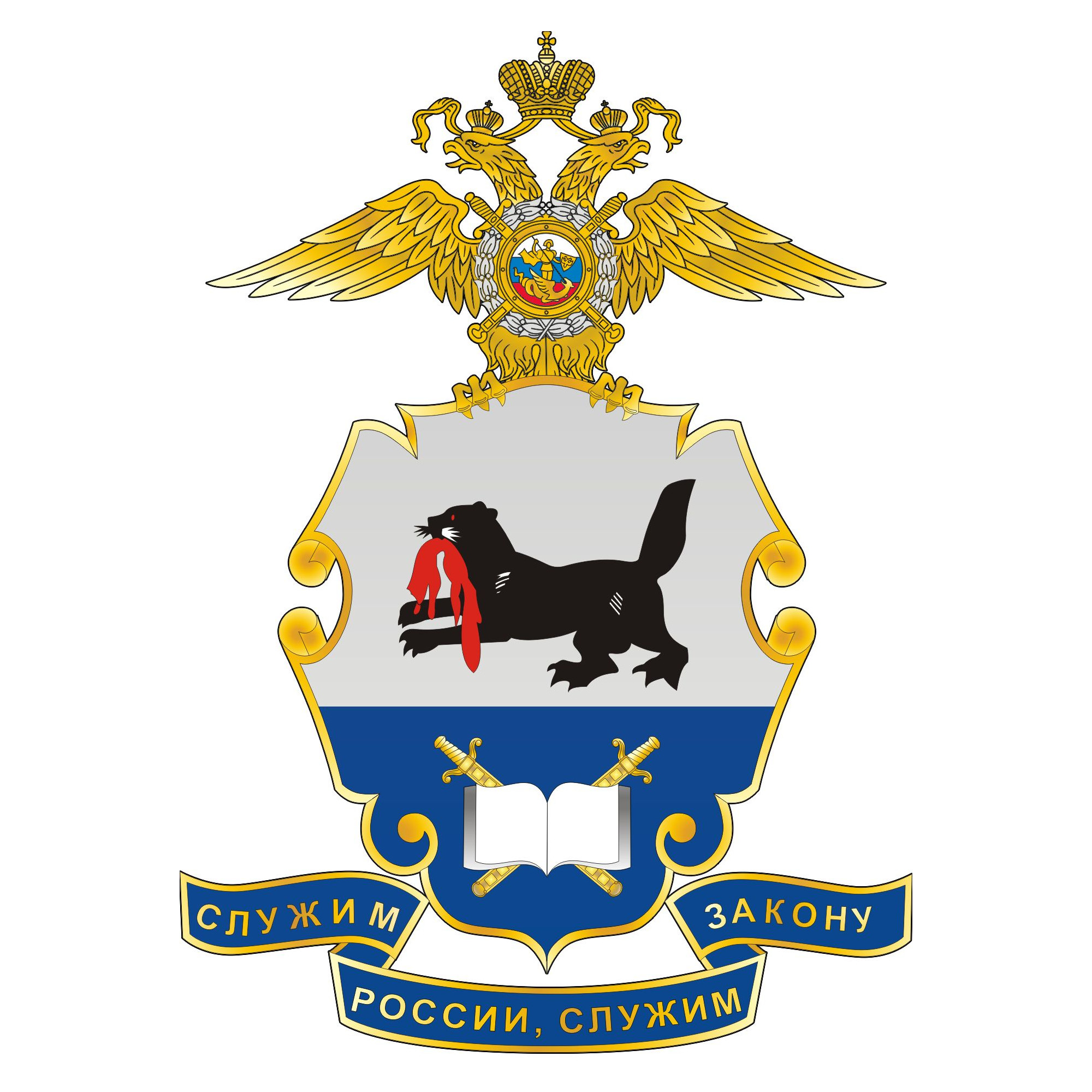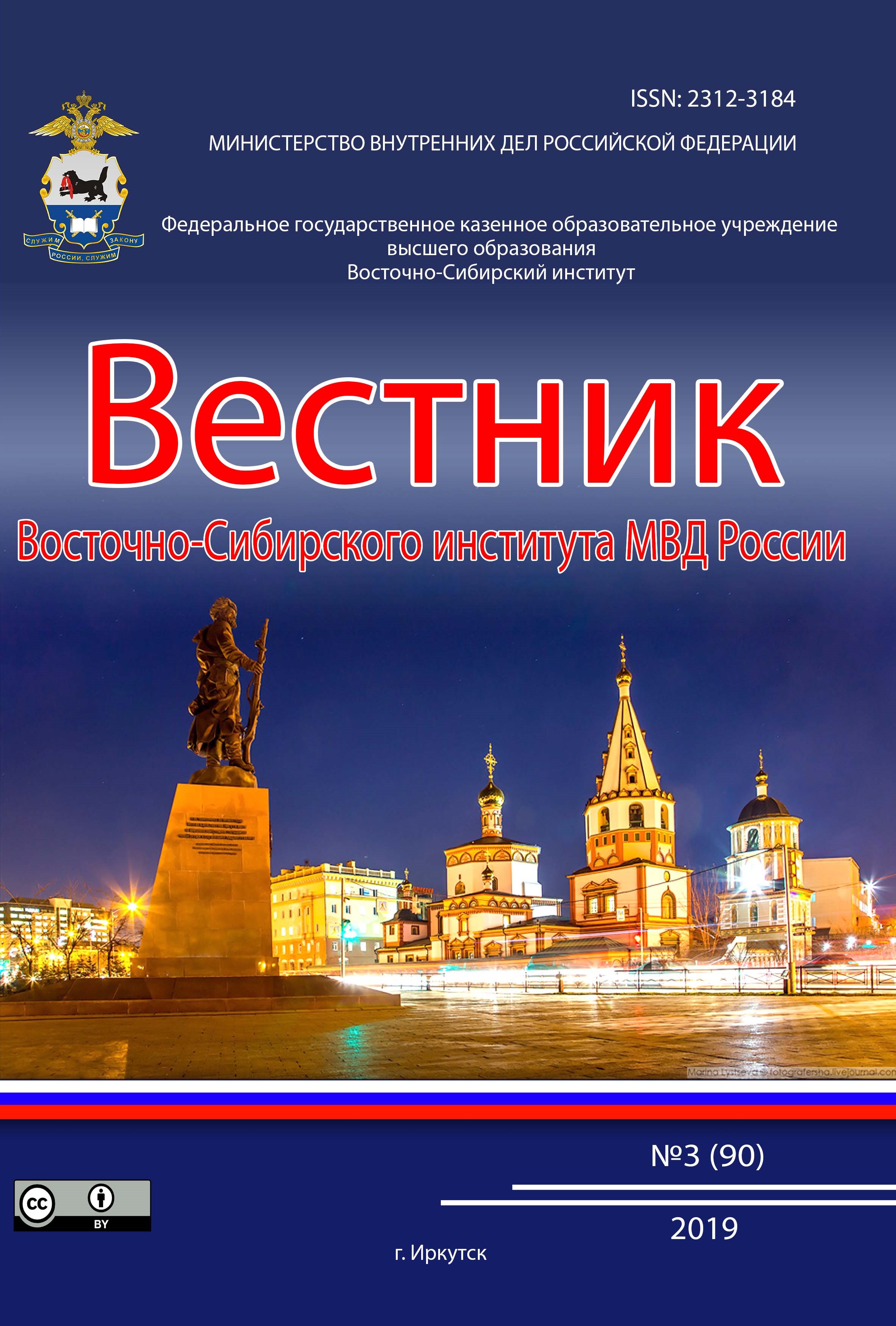from 01.01.2023 until now
Introduction: the article provides comparative analysis of the legal and organizational foundations of population participation in ensuring public order in two states: the Russian Federation and the Republic of Belarus. Materials and methods: the normative basis of comparative legal research is the norms of Russian and Belarusian legislation, which establish the main forms of assistance of civil society institutions to internal affairs bodies in protecting law and order, the legal status of persons involved in this socially beneficial activity. The methodological basis of the study was the comparative legal method of scientific knowledge, which made it possible to identify the general and special in the material under study, as well as the dialectical method, methods of logical deduction, induction, cognitive methods, analysis, generalization and description. The results of the study allowed to formulate similar aspects of public participation in the protection of public order, identify the distinctive features of the activity under consideration, and also suggest ways to improve the efficiency of the functioning of the institution of civil society participation in ensuring and maintaining public order and public safety. Findings and conclusions: 1) the participation of civil society institutions in ensuring law and order in Russia and the Republic of Belarus covers both individual and collective forms; 2) freelance cooperation in Belarusian legislation, unlike Russian legislation, can be carried out not only with internal affairs bodies (police), but also with other government bodies. The legal status of a freelance employee differs in terms of expanding the powers of a Belarusian freelance employee to apply special measures of administrative and legal coercion; 3) on the right, the status of the people's squads in general seems to be quite similar in terms of securing the basic rights and responsibilities for the protection of public order. At the same time, fundamental differences relate to the granting of special rights to the people’s squads to suppress offenses in accordance with the legislation of the Republic of Belarus, including the right of the use of physical force. It is proposed to improve the status of the Russian people's squads by giving him the right of the use of physical force in order to suppress illegal acts, if it is impossible to use other means of countering the unlawful behavior of the offender.
public safety, public order, protection of public order, voluntary people’s squads, freelance cooperation.
1. Pankratov S. A. Vzaimodejstvie institutov vlasti i grazhdanskogo obshchestva v kontekste protivodejstviya ekstremistskim formam povedeniya sovremennoj molodezhi [Interaction Between Institutions of Power and Civil Society in the Context of Countering Extremist Behavior of Modern Youth]. Baikal Research Journal –Baikal Research Journal. 2022., vol. 13, no. 4, pp.
2. Pirbudagova D. Sh., Musalova Z. M. Rol' institutov grazhdanskogo obshchestva v protivodejstvii ekstremizmu v Rossii [The role of civil society institutions in counteracting extremism in Russia]. Vserossijskij kriminologicheskij zhurnal – Russian Journal of Criminology. 2017, vol. 11, no. 4, pp. 784–793.
3. Ivanchenko O. S., Ivanchenko, R. B. Instituty grazhdanskogo obshchestva v preduprezhdenii korrupcii [Institutions of civil society in the prevention of corruption]. Policiya i obshchestvo: problemy i perspektivy vzaimodejstviya – Police and society: problems and prospects of interaction. 2022, no 4, pp. 83–88.
4. Batyanova L. N., Kornakova S. V., Chigrina E. V. Grazhdanskie dvizheniya kak vozmozhnaya dejstvuyushchaya sila social'nyh preobrazovanij [Civil movements as a possible active force of social transformations]. Baikal Research Journal –Baikal Research Journal. 2017, vol. 8, no. 1, pp.
5. Kuptsova O. B. Princip deliberativnosti kak vazhnejshaya predposylka vzaimodejstviya social'nogo gosudarstva i grazhdanskogo obshchestva v epohu cifrovizacii [The principle of deliberation as the most important prerequisite for the interaction of the welfare state and civil society in the era of digitalization]. Akademicheskij yuridicheskij zhurnal –Academic Law Journal. 2021, vol. 22, no. 4, pp. 287–296.
6. Potanin A. V. K voprosu o zakreplenii za narodnymi druzhinnikami special'nyh prav i objazannostej i otdel'nyh problemah ih realizacii [The issue of affording of special rights and duties to the voluntary people’s guard and some problems of their enforcement]. Jurist-Pravoved – Jurist-Pravoved. 2017, no. 1 (80), pp. 202–206.
7. Baryshnikov M. V., Isaev M. M. Administrativno-pravovye formy vzaimodejstviya policii s grazhdanami po ohrane obshchestvennogo poryadka (na primere Orlovskoj oblasti) [Administrative legal forms of interaction of police with citizens on public protection (on the example of regional experience of the Orlov region)]. Vestnik Krasnodarskogo universiteta MVD Rossii – Vestnik of the Krasnodar University of the Ministry of Internal Affairs of Russia. 2020, no. 2 (48), pp. 75–79.
8. Guz O. M. Opyt i rezul'tativnost' praktiko-orientirovannoj podgotovki narodnyh druzhinnikov na baze organizacij sistemy MVD Rossii [Experience and effectiveness of practice-oriented training of voluntary people’s guard members based at the organizations of MIA of Russia]. Vestnik Sankt-Peterburgskogo universiteta MVD Rossii – Vestnik of St. Petersburg University of the Ministry of Internal Affairs of Russia. 2021, no. 2 (90), pp. 158–165.
9. Bezhentsev A. A., Petrov T. A. Uchastie grazhdan v profilaktike pravonarushenij i ih vzaimodejstvie s pravoohranitel'nymi organami: tradicii i perspektivy [Participation of citizens in the prevention of offenses and their interaction with law enforcement authorities: traditions and perspectives]. Vestnik Kaliningradskogo filiala Sankt-Peterburgskogo universiteta MVD Rossii – Vestnik of the Kaliningrad branch of St. Petersburg University of the Ministry of Internal Affairs of Russia. 2022, no. 4 (70), pp. 91–95.
10. Kolyosko S. S. K voprosu o pooshchrenii grazhdan, uchastvuyushchih v ohrane obshchestvennogo poryadka [On the issue of encouraging citizens participating in the protection of public order]. Vestnik Grodnenskogo gosudarstvennogo universiteta imeni Yanki Kupaly. Seriya 4. Pravovedenie – Vestnik of Grodno State University named Yanka Kupala. Series 4. Jurisprudence. 2022, vol. 12, no 2, pp. 33–41.











